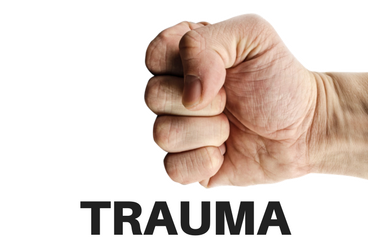
Trauma & Addiction Treatment & Recovery
Trauma is a contributing risk factor in developing substance use disorder.
Many individuals with substance use disorders use alcohol and other drugs to self-soothe and help decrease symptoms of anxiety, guilt, shame, fear, irritability, anger, insomnia, depression, loss of appetite, and inability to concentrate.
MANY OF THESE TYPES OF SYMPTOMS ARE ASSOCIATED WITH THE HEIGHTENED STRESS & INABILITY TO REGULATE EMOTIONS AFTER A TRAUMATIC EXPERIENCE(S).
Exposure to traumatic experiences can be in the form of sexual, physical, or emotional abuse (i.e. bullying, life-threatening disease, mass violence, poverty, natural disaster, sexual assault), that is experienced either directly or indirectly.
1 in every 9 soldiers will develop Post-Traumatic Stress Disorder (PTSD) from active military combat, putting this population at a high risk for developing a substance use disorder due to the trauma.
Methods for treating both the substance use disorder, and any associated trauma, have been found to increase long-term positive patient outcomes.
COMPONENTS OF TRAUMA-FOCUSED TREATMENT OFTEN INCLUDE:
- Grief or loss counseling
- Peer support groups
- Individual or group talk therapy (Cognitive Behavioral Therapy)
- Exposure or desensitization work
- Pharmacotherapy: medications to decrease symptoms
- Holistic practice: mindfulness techniques, relaxation, yoga, meditation, acupuncture
- Coping skill development: emotional regulation, cognitive restructuring (often gender specific coping skills)
3 CORE TENETS OF TRAUMA-SPECIFIC INTERVENTIONS
- Recognize the survivor’s need to be respected, informed, and optimistic about recovery
- Identify the interrelation between trauma and substance use
- Work collaboratively with family and friends of the survivor, and other human services agencies to ensure empowerment and promote resiliency
According to the U.S. SAMHSA, THE 6 KEY PRINCIPLES OF TRAUMA INFORMED CARE:
- Safety
- Trustworthiness and Transparency
- Peer Support
- Collaboration and Mutuality
- Empowerment, Voice, and Choice
- Cultural, Historical, and Gender Issues
2 Empirically-based Trauma-Focused Models for Addiction Treatment:
Seeking Safety
Seeking Safety is an evidence-based, present-focused counseling model designed to help people attain safety from further trauma and substance use. For more information, visit Seeking Safety (used in Hazelden Betty Ford’s COR-12 program).
Trauma, Addiction, Mental Health, and Recovery (TAMAR)
Developed as part of the first phase of the SAMHSA Women, Co-Occurring Disorders and Violence Study, the TAMAR Education Project is a structured, manualized 10-week intervention combining psycho-educational approaches with expressive therapies. For more information, email darren.mcgregor@maryland.gov
Other trauma-informed treatment interventions for substance use disorders include, prolonged exposure therapy, Beyond Violence, and trauma focused cognitive behavioral therapy.
- LIMITATIONS
-
- Despite trauma informed care being a popular buzz word among treatment providers, relatively few known long-term studies exist to-date that focus on the effectiveness of trauma informed care on substance use disorder treatment outcomes.
- In addition, the term “trauma informed care” varies depending on interpretation, and therefore is executed through a variety of different interventions and methods. Always clarify the operational definition or practical execution of the term.
- CITATIONS
-
Desai, R. A., Harpaz-Rotem, I., Najavits, L. M., & Rosenheck, R. A. (2008). Impact of the seeking safety program on clinical outcomes among homeless female veterans with psychiatric disorders. Psychiatric Services, 59(9), 996-1003.
Hien, D., et al. (2009). Multisite randomized trial of behavioral interventions for women with co-occurring PTSD and substance use disorders. Journal of Consulting & Clinical Psychology 77(4):607-19.
Kubiak, S., Fedock, G., Kim, W. J., & Bybee, D. (2016). Long-Term Outcomes of a RCT Intervention Study for Women with Violent Crimes. Journal of the Society for Social Work and Research, 7(4), 661-679.


